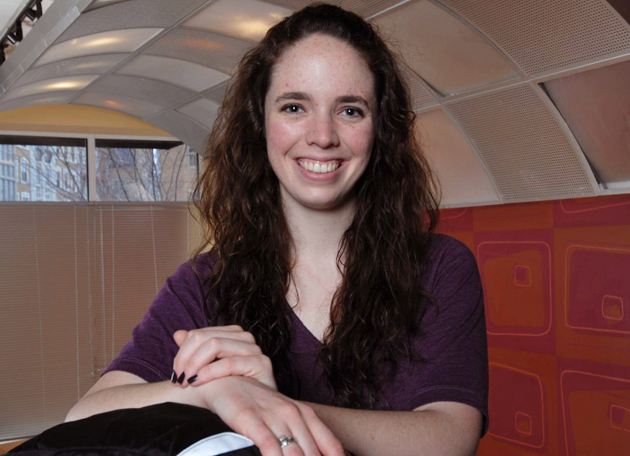
“My own self at my very best, all the time.” The words of William H. Danforth (MTS 1887, ME 1892), grandfather of Chancellor Emeritus William H. Danforth, MD, became the family’s motto. Celebrating individuality, human goodness and resolve, this same motto tacitly defines many Washington University students and alumni — and serves as watchwords for William H. and Elizabeth Gray Danforth Scholars.
“Danforth Scholars also share a wonderful sense of community,” says Sharon Stahl, PhD, Danforth Scholarship Program director. “They do strive always to be their own selves, doing their very best.”
Established in tribute to the former chancellor and first lady’s leadership and service, Danforth Scholarships provide full and partial tuition. They are awarded to entering freshman, transfer and graduate students — individuals who personify high ideals, and whose lives show integrity, selflessness and dedication to scholarship, leadership and the community. Since the program’s inception in 1998, more than 25,000 students from across the country and around the world have been nominated. And, from that group, approximately 400 have been named as Danforth finalists. Up to 30 a year, these incoming students go on to represent disciplines across the university: architecture, art, Arts & Sciences, business, engineering, law, medicine and social work.
“Danforth Scholars also share a wonderful sense of community,” says Sharon Stahl, PhD, associate vice chancellor for students, dean of the First Year Center and Danforth Scholarship Program director. “They do strive always to be their own selves, doing their very best. They’re active on campus and are also ‘everyday leaders’ who, like the Danforths, inspire by the way they live their lives. And like so many of our students, they have generous spirits. They are sensitive to social injustice. They give us hope.”
“We want to do things that are good for ourselves and good for the world.”
—Fiona O’Leary Sloan, Arts & Sciences Class of ’13 (Anthropology)
Five days before Pre-Orientation in 2009, Fiona O’Leary Sloan began her freshman year with a 14-hour bus ride to Michigan. There, she and 27 other new Danforth Scholars spent five days in the forest-and-lakeside setting of Camp Miniwanca, which the Danforths helped found in the 1920s. They spent this bonding time together with Dean Stahl, project coordinator Brian Woll and five seasoned Scholars.
Sloan says that protected time of stories, reflection, discussion and lighthearted mealtimes have been central to her experience in the program. “We came out of Miniwanca the best of friends. Danforth Scholars are amazingly different in many ways — but we all want to grow into individuals we can be proud of. We inspire and support one another.”
At the university, Sloan joined WU-Slam: 20 student poets who say their poems with gestures and vocal inflections at four competitive fall events. She was one of four to win the Grand Slam, and at the 2010 College National Poetry Slam, the team took fifth place. She also teaches Inklings, an open two-hour weekly poetry-writing workshop.
In her brief time away from hometown Seattle (Sloan’s now a sophomore), her calendar has included travel to Cuba with her freshman FOCUS seminar program; five weeks in Kalleda, India, through the Village India program; and anthropology research with Professor Glenn Stone. And she says: “I have so much left to do!”
“This group is sincere and genuine in everything they do. I have no hesitation in making that generalization.”
—Donesh Ferdowsi, Architecture Class of ’12
“If you’re going to do something, put your heart into it; otherwise, don’t do it!” Donesh Ferdowsi says with the passion that prompted him to help set up trips over spring break to work for Habitat for Humanity.
In many ways, Ferdowsi speaks for Washington University students in general — as well as for Danforth Scholars: “This school is so encouraging,” he says. “They want us to develop ourselves and contribute as much as we can. It’s the humanity — you just feel it, being a student here.”
“In whatever realm, Danforth Scholars want to make the world better. They’re not looking for praise — if anything, they’re looking for help,” Ferdowski says.
A person who delights in continually creating, Ferdowsi spends much of his time at the Sam Fox School of Design & Visual Arts, working and talking with other architecture students and informally mentoring freshmen. “That’s in line with what the Danforth Scholarship Program encourages us to do: support one another. Our group is not an exclusive unit but a foundation for other people.
“Building out from the close friendships among Danforth Scholars comes opportunities in the larger community,” Ferdowsi continues. For example, he revived the campus Baha’i Club and leads a spiritual study circle of nine people — some religious, some secular — who have varied interests. Three Danforth Scholars participate.
“In whatever realm, Danforth Scholars want to make the world better. They’re not looking for praise — if anything, they’re looking for help.”
“Being a Danforth Scholar was absolutely transformative for me. Without that experience, I can’t imagine that I would have blazed this trail.”
—Nicole Solawetz-Cortes, AB ’06 (psychology and Spanish); Class of 2012 (graduate law and social work)
Nicole Solawetz-Cortes is matter-of-fact about the past demands of double majoring as well as the current pressures of tightly sequenced tasking as she earns joint graduate degrees. That’s who she is: doing what it takes to be of help where her heart goes — and to make significant changes happen.
Always interested in social work, Solawetz-Cortes wants to work with Hispanic communities. “Knowing the law will be a great tool for advocacy and work on the grass-roots level,” she says. “I’ll probably end up in immigration law.”
A Danforth Scholar while an undergraduate, Solawetz-Cortes was a facilitator at Camp Miniwanca during her second and third summers. She tutored Hispanic schoolchildren every year and studied for a semester in Chile. “When I told Dean Stahl how much I wanted to return to Chile, she suggested I apply for a Fulbright teaching assistantship and supported me through that process my senior year.”
After graduation, Solawetz-Cortes volunteered with children in Santiago for seven months until her Fulbright-sponsored university teaching began in Concepción. Nor does her dedication break for summer: In the historic heat of 2010, Solawetz-Cortes fielded questions from migrant workers in southern Illinois’ orchards and strawberry fields, on an internship for the Legal Assistance Foundation of Chicago.
“When I think of my Danforth Scholarship, my reaction is gratitude — just gratitude.”
—Caitlin Chicoine, Engineering Class of ’11
“My Danforth Scholarship enabled me to attend this university. And it has provided me with an absolutely wonderful community of people. I’ve learned so much from them all!” says Caitlin Chicoine, a senior biomedical engineering student who intends to apply to medical school.
“My Danforth Scholarship enabled me to attend this university. And it has provided me with an absolutely wonderful community of people. I’ve learned so much from them all!” says Chicoine.
“I came to Washington University wanting to help others throughout my four years,” adds Chicoine, who during her spring breaks has swapped leisure for building houses for people in need. She also has contributed bench work in a biomedical engineering lab, and between Commencement and medical school, she’ll combine clinical research with service.
But to appreciate Chicoine’s greatest involvement on behalf of others so far, picture, with sound, a thousand students dancing … and dancing … for 12 hours to country, pop, R&B, you name it — while sideliners shout out. The electric occasion is Dance Marathon, which in 2010 raised more than $176,000 for the Children’s Miracle Network of Greater St. Louis. Team captain her first year, Chicoine was so inspired that she applied to the executive board and later became an executive director.
“We like people to at least stay on their feet the whole time,” she says. “We’re standing in solidarity with children and families who persevere through so much — and especially remembering those kids who can’t dance with us every year.”
“I still have a responsibility to live up to the expectations that came with being a Danforth Scholar — for leadership and making a difference in the community.”
—Chase Sackett, AB ’10 (classics and economics)
Even in high school back in Cincinnati, Chase Sackett had a drive “to go out and make a difference.” When he brought that sense of social responsibility westward, he found in the Danforth Scholars “a network of supportive people who had the same sort of commitment.” Wasting no time, Sackett set about joining various student groups to “improve the community and keep moving forward.”
In his first two years, Sackett was a member of the Congress of the South 40; next, he was a Student Union senator and then speaker. On his watch the senate opened its meetings to students, established go-to personal senators, and initiated gender-neutral housing’s expansion.
Member of honorary societies and the intramural basketball team that in his senior year “finally won the Undergrad A championship,” Sackett developed a strong interest in socioeconomic diversity. He co-founded and co-chaired WU/FUSED (Washington University for Undergraduate Socioeconomic Diversity). He also helped create — and is still involved with — U/FUSED (United for…), to which seven other colleges and universities belong.
Now completing a Coro leadership training and experiential learning program in public affairs in St. Louis, Sackett will attend Yale Law School next year. He says his experiences at Washington University have prepared him well for future service.
Judy H. Watts is a freelance writer based in St. Louis and a former editor of this magazine.
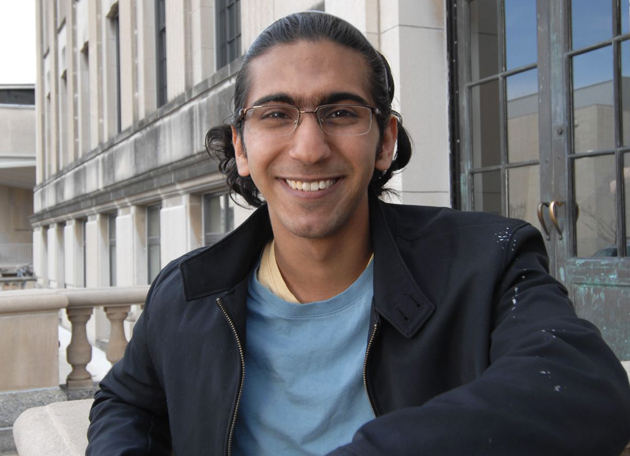
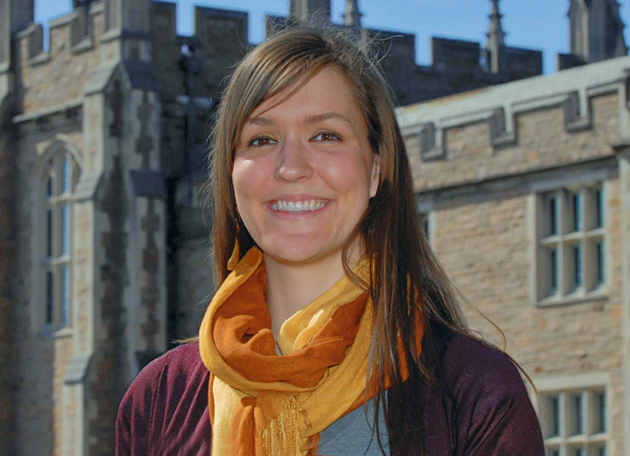
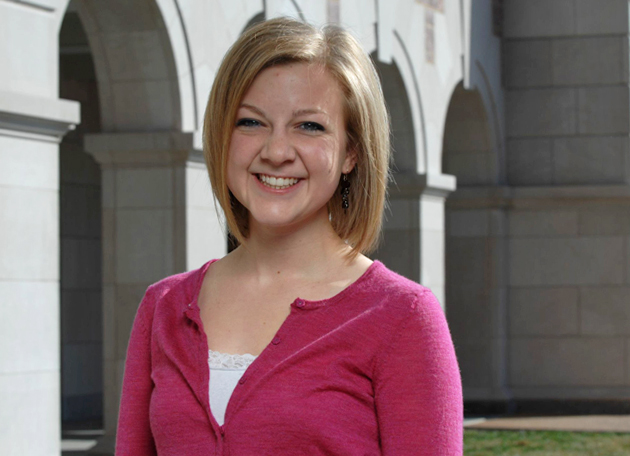
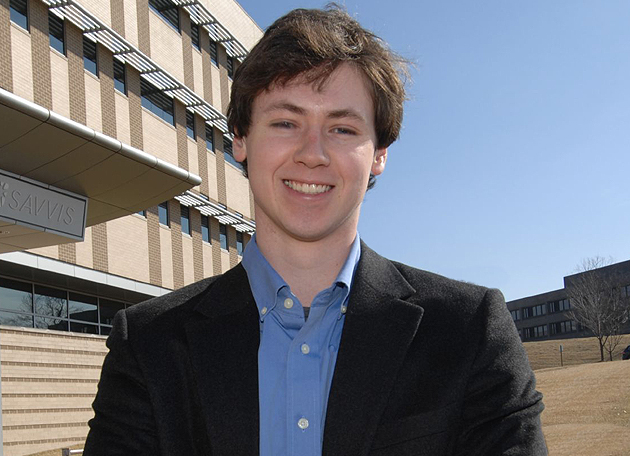
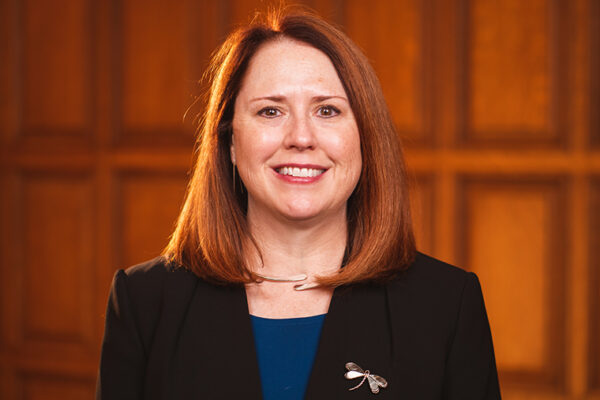
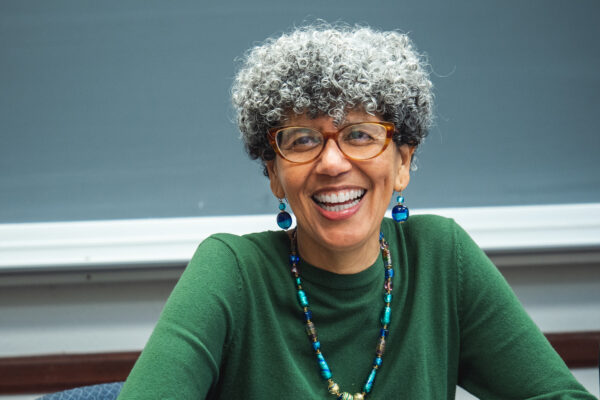

Comments and respectful dialogue are encouraged, but content will be moderated. Please, no personal attacks, obscenity or profanity, selling of commercial products, or endorsements of political candidates or positions. We reserve the right to remove any inappropriate comments. We also cannot address individual medical concerns or provide medical advice in this forum.